
Ben Gribbin
November 24, 2014
Search
Popular Articles
8 Almost Useless Land Rover Mods
11th June 2014
Updated: What Makes a Defender Iconic?
29th November 2011
This photo above prompted a lot of activity on our Facebook page recently. The photo is a cheeky nod to a very common problem with Land Rovers. Leaking vents. Sunroofs that aren't weatherproof. Seals, that aren't very good at sealing. So, we've put together this brief guide to help you eliminate the leaks and make the interior of your Land Rover much less humid.
Remove Carpets
First off, you need to remove your carpets and any other pieces of porous trim you may have. Because these trim pieces are very often laid over metal surfaces, they retain moisture and quickly become soaking wet. Hang them up on the washing line or in the airing cupboard to fully dry them out. This should:
- Stop the cab smelling musty
- Reduce humidity inside the cab
- Lower the rate of corrosion
- Allow you to trace the leak
- Ensure as long a life as possible for factory carpet / rubber trim sets. Water can cause resins to break down and carpets to delaminate from their backing.
Whilst the inside of your Land Rover is drying out, it's time to find the leaks.
Find the leaks
Next, you'll need the Defender water ingress manual. Land Rover openly admit that due to the design of the Defender, leaks are difficult to pin point to any one area. This results in a lot of warranty jobs at dealers and drove Land Rover to produce the Water Ingress Manual, pointing to the most problematic body seams, fixings, seals and panels. You can download that manual at the above link, it's readily available online.
Armed with this manual, a friend and a hose pipe, you should follow the suggested steps to source your leak. The most common areas to find water are:
- The footwells (resulting in sodden floor matts)
- Rear tubs
- Dripping from the sunroof
- Dripping from the interior lights
- Down the doors (and getting trapped inside them)
- Around alpine lights
- Down the bulkhead / pedal boxes
The manual provides very thorough guidance on plugging these leaks, some of the processes are outlined below.
Plug Leaks
The first thing to make sure is that any seals you have, such as around the windscreen, doors, vents e.t.c. are all in good condition. The windscreen seal in particular can perish due to UV light, the resulting cracks allow water to creep from the outside to the inside of your vehicle. So, inspect all rubber seals and foam gaskets to make sure this isn't causing your water ingress problem. Renewing these should stop that leak. But it's likely you have more than one.
You should also check bolts and rivets. Land Rover list the most likely fixings that fail, letting water in and quickly corroding the hole in which they sit. You should dry these throughly, before applying some appropriate sealant and refitting them.
Land Rover often recommend the use of a product known as "Dum Dum". This was sadly discontinued in 2011 due to it's chemical make-up. Suppliers suggest the use of generic "body caulking" as an alternative. You can find this on eBay or from Frost Auto Restoration. Other owners have found success, especially with roof leaks, using Captain Tolley's Creeping Crack Cure.
Use a moisture pack / dehumidifier
If you find you have problems with condensation and you've tried the Land Rover factory suggestions for stopping leaks - grab yourself some of the disposable dehumidifier packs that are on offer. You'll find them in a lot of the pound shops and supermarkets, they really do work wonders. I had a condensation problem and stuck 2 of these in the boot of the 110. They absorbed water slowly over a few months, by the end of their lives, the cab was much drier. The carpets were near bone dry. These little packs are must haves for any Land Rover owner.
We hope this post has helped to motivate you to get out and stop your Defender or Series vehicle leaking like a sieve. If you have any comments or questions, or even tips you've picked up over the years, please share them with the rest of the FunRover community.
Related items for sale on eBay
| Ebay has returned a malformed xml response. This could be due to testing or a bug in the RSS2 Generator. Please check the support forums to see if there are any posts regarding recent RSS2 Generator bugs. CURL error code = 6. (Could not resolve host: rest.ebay.com) |
2 Comments
Leave a Reply
About Us
FunRover is a place for Land Rover enthusiasts to gather as a community and discuss the best 4x4 vehicles ever produced. We're building a library of high quality resources & articles to help owners along in their Land Rover ownership.
Popular Posts
8 Almost Useless Land Rover Mods
11th June 2014
Updated: What Makes a Defender Iconic?
29th November 2011
How to Plastidip your Land Rover Defender
19th August 2014






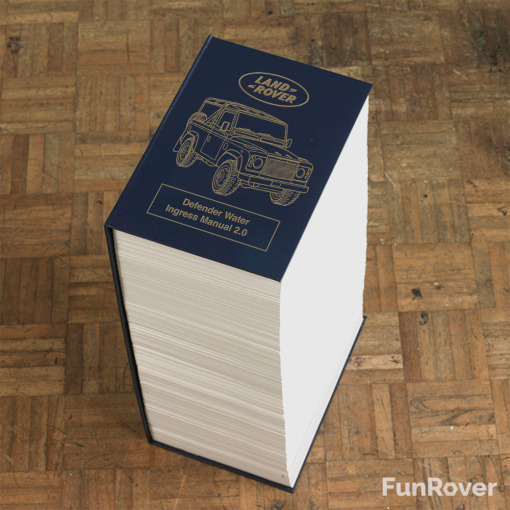
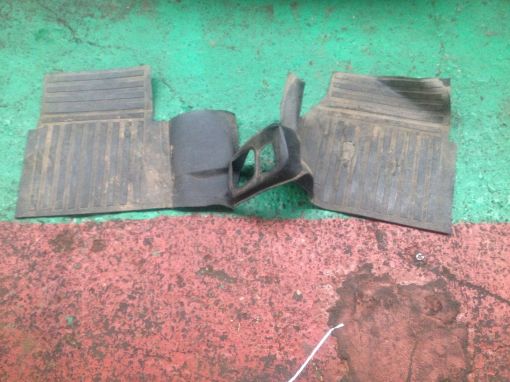
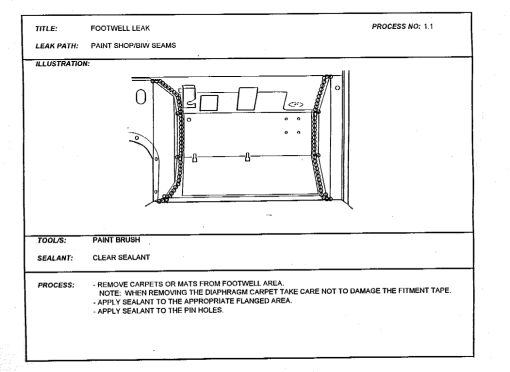
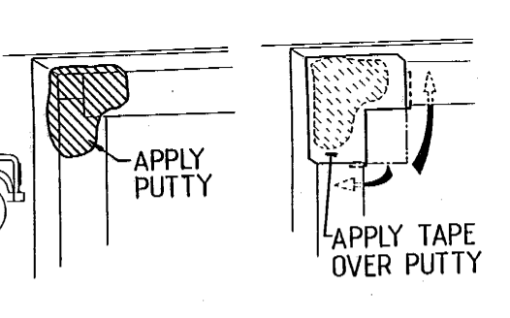
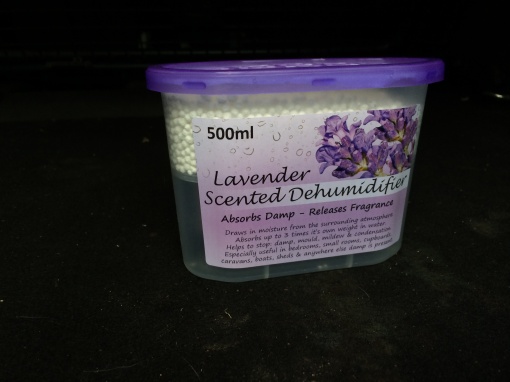
I used sikaflex on the roof in the seams which is meant to work. I got the idea from Brett of roaming the outback. He has a detailed video on stopping leaks.
Thank you for sharing all these helpful information.